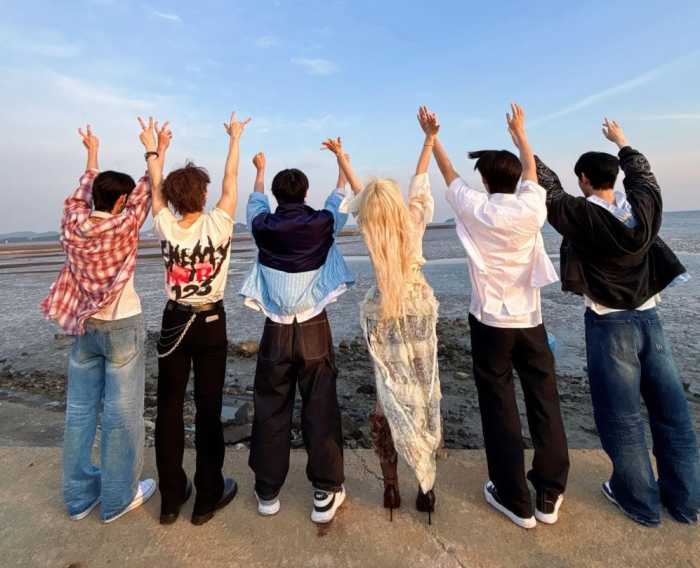
When a person thinks back to senior year of high school, a few seminal memories likely come to mind — maybe it’s attending a championship game, getting ready for prom, crossing the stage on graduation day. For the students of Marjory Stoneman Douglas High School in Parkland, Florida, these memories are present but colored by the events that took place on Feb. 14, 2018, when 17 students were killed in a shooting that still has the nation reeling.
In "After Parkland," screening at the Tribeca Film Festival, filmmakers Jake Lefferman and Emily Taguchi captured stories of survivors and families of the victims in the days following the tragedy.
For student-turned-activist Sam Zeif, life changed in immeasurable ways, and events like his 18th birthday — the day after the shooting — were marked with immense loss. He would go on to recount details with an eloquence that surprised Lefferman and Taguchi. "I think we were just both blown away that someone could be so close to a trauma and understand why it was so important to explain to the world what they’ve been through," Lefferman said.
Some of Zeif’s stages of grief are intrinsically tied to keeping the memory of his best friend, Joaquin "Guac" Oliver, alive through activism and community engagement. The activists of Marjory Stoneman Douglas aren’t interested in their story becoming just another statistic and, because of their continued determination, an amplified message of #NeverAgain heard throughout school walkouts and during the March For Our Lives rally, echoes on in an effort to create conversations around gun control and school safety.
amNewYork spoke with Zeif about his continued support of the movement and what comes after Parkland.
You spoke very early on at the White House and gave an emotional testimony. How was it addressing this administration, which prioritizes the right to bear arms?
Yeah, they don’t really care, but I guess it felt good to get my voice out. That was the second time I really talked about it publicly and, even though they weren’t going to help me, that brought the people that will. So it was worth it but I didn’t really want to be there. No one told us what was happening. All they said was that there would be a listening session with the president, the vice president and the press secretary, but that’s it.
Do you consider yourself an activist, and do you hope to continue speaking out?
Yeah, I consider myself an activist, but it’s not a career. I go back to the same quote a lot, which is, "I’m simply doing this because there’s nothing better to be doing." I didn’t go into this because I wanted to end gun violence. I wanted to do something in memory and value my friend. No one should have to go through what we’ve gone through, and nobody should have to feel the pain that we felt.
The reason why this has made such an impact is because your generation has grown up with social media and knows how to use it to amplify a message in a powerful way.
One hundred percent. It was very easy for this to catch wind and spread around the country. We were able to spread this movement around the country in a matter of weeks because of social media. It kind of just blew up off of us expressing our feelings. We didn’t coordinate with each other a movement plan. At first, it just blew up off of raw emotion.

The filmmakers captured a moment with fellow survivor David Hogg, about how difficult public scrutiny is when notifications are coming across your screen moment to moment. Can you ever truly disconnect?
I turn my phone off, really. There’s not really disconnecting it’s just — it’s up to you how you disconnect. There’s some people who started in this movement full speed, and now they don’t even want to talk about it, which is OK. I just delete the apps if I have to. It’s an attempt to keep my mind off of it, but I don’t find myself getting triggered by trolls very much.
I remember extreme right-wing groups were saying students were crisis actors. Does stuff like that weigh heavily on you?
It’s [expletive]. It’s people being stupid. It’s like, you’re going to call us actors? You can see the death certificates of our friends online if you really need to. People have nothing better to do and it’s easier to say, "Oh those are crisis actors," rather than to accept the reality of kids dying in school. It’s like saying to a person, “I don’t believe your mother died, prove it.”
Can you talk a bit about the #NeverAgain movement and also the walkouts that happened as a result of the Parkland shooting?
The walkouts started with conformity with the school system because they didn’t fix this issue immediately. The #NeverAgain movement — people get confused because they think it means “never again will we let a tragedy happen,” but it’s not that. It’s “never again will we stand idly by and not do anything about it.”
We just passed the year mark for March for Our Lives. Does the movement still feel like it has the same momentum?
It’s different. It’s not the same exact energy, but it’s still kind of on the message that we just need to get this done. We’re all trying to figure out a way right now to unite all the voices into one so that everything can be coming from one place, so hopefully that will result in a stronger voice altogether.
In terms of school safety, there seems to be this divide between how to make this a nonissue. Some people don’t feel comfortable coming down on policy. What would you like see to happen?
There’s plenty of things. There should be better guidance counselors, better emotional support, better security protection, metal detectors. There’s a lot of things that went wrong in our school that other schools have a handle on — there was a lot of neglect in our situation. Two days later, after we got clear backpacks, people brought knives to school. They hid the machetes in their folders.
What do you think it would take to get Washington energized and put something into policy?
Nothing is going to energize them to change if they’re continuously being flooded with money. What I think would work is voting them out and signing in politicians that will actually care about lives rather than pushing their own agenda or creating a legacy for themselves. Imagine how many people would vote for President Trump, who wouldn’t before, if he actually had made positive changes for this country? [When I addressed him at the White House] he had a script and he was just there to play the part.
Is it hard not to become disenfranchised by the lack of response in Washington surrounding proper policy in ensure school safety?
Yeah, it’s hard because it’s like talking to babies. Maybe you have to wait for them to grow up and learn their lesson because truthfully, I don’t think they’re going to do anything. You have to change the people.
What’s the one thing you want people to know about your friend Joaquin?
He would always be the person to say the thing that other people were afraid to say. He was never a bystander. He always made sure everyone knew what he believed in and made sure that that wasn’t left out.
What: "After Parkland," screening at Tribeca Film Festival
When: 6:30 p.m. April 26, SVA Theater, 333 W. 23rd St.; 3 p.m. April 27, Village East Cinema, 181-189 Second Ave.; 8 p.m. May 1, Regal Cinemas Battery Park 11, 102 North End Ave.; 12:30 p.m. May 5, Village East Cinema
More: tribecafilm.com
































